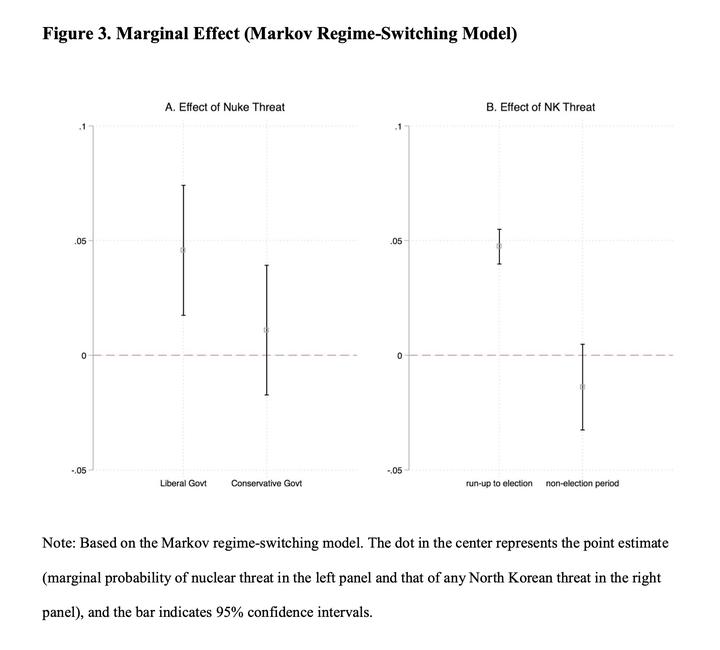
Abstract
Do external security threats shy away from foreign investors? While classical political economy theories focusing on property rights protection posit that security threats undercut financial inflows, recent empirical studies report rather mixed evidence. We add to this body of research by investigating the effect of North Korean military provocation on financial inflows into South Korean stock markets. We contend that 1) foreign investors favor conservative over liberal governments, and 2) investors have learned over time that North Korean threats lead to electoral gains for the conservative party. Our time-series analysis of the monthly Korean stock market data in the post-liberalization period (2000–2018) reveals that North Korean threats led to increases in capital inflows if these threats were made under liberal governments or in the period prior to parliamentary elections.